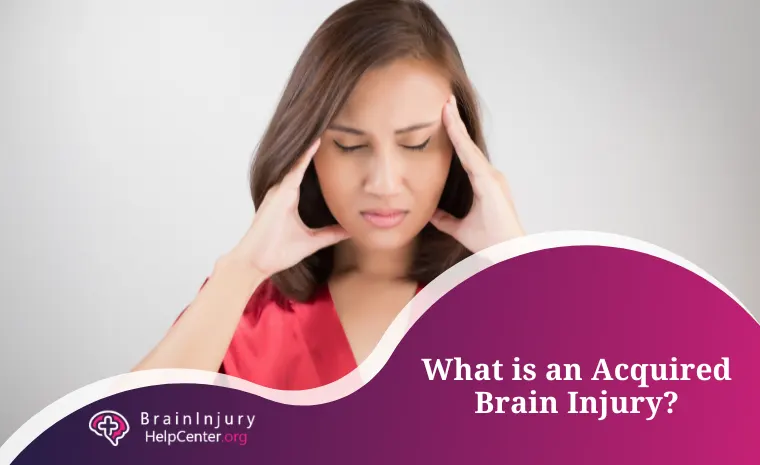What is an Acquired Brain Injury?
Have you ever heard of an acquired brain injury? It is a medical term that is often used, but many people may not fully understand what it means.
Brain injuries can occur in different ways, such as accidents, falls, or medical conditions. An acquired brain injury (ABI) is one that occurs after birth and is not related to genetic or congenital factors. ABI can have a significant impact on an individual’s physical, cognitive, and emotional functioning, and can vary depending on the severity.
Understanding what an acquired brain injury is, and its potential consequences, is crucial for both individuals who have experienced such injuries and their loved ones. In this article, we will explore the definition and different types of acquired brain injuries, as well as the causes and potential effects they can have on individuals.
Have you been diagnosed with a brain injury?
What is an Acquired Brain Injury?
An acquired brain injury (ABI) is not hereditary, congenital, degenerative, or induced by birth trauma. It occurs after birth and can be caused by different types of events, causing a change in the brain’s neuronal activity. ABI is known as the umbrella term for all brain injuries and can be classified into two types:
Traumatic Brain Injury (TBI)
A traumatic brain injury is the result of an external force that causes the brain to collide with the inside of the skull. This can happen due to:
- Accidents
- Falls
- Sport injuries
- Assaults
- Other sudden impacts
The severity of this type of brain injury can range from mild to severe, leading to long-term cognitive, physical, and emotional impairments. Some symptoms of TBI can include confusion, memory problems, headaches, dizziness, mood changes, and more.
TBI is a major group of ABI and is a leading cause of mortality and lifelong disability. According to the Centers For Disease Control and Prevention, there were over 69,000 TBI-related deaths in the United States in 2021, averaging about 190 deaths per day.
Non-Traumatic Brain Injury
A non-traumatic brain injury may occur due to internal factors.
- Abrupt commencement – This is triggered by trauma, infection, oxygen deprivation (e.g., near-drowning or suicide attempts), strokes or a heart attack, and episodes of drug use.
- Gradual onset – Gradual onset of non-traumatic brain injuries may stem from extended alcohol or substance abuse, toxic exposure, brain tumor, neurological disorders, or degenerative disease (like AIDS, Alzheimer’s disease, cancer, multiple sclerosis, or Parkinson’s disease).
Other non-traumatic causes can lead to inflammation, neuronal cell damage, and impaired brain function. Symptoms and outcomes vary depending on the underlying cause and affected brain regions.

ABI Impact on Daily Life
As mentioned earlier in this article, an acquired brain injury can occur due to traumatic events that emotionally and financially affect the brain injury victims. Additionally, from severe injuries or emotional trauma, the impact of an ABI on daily life can be profound and varied depending on factors such as the specific areas of the brain affected, the severity, and the individual’s overall health.
Some of the impacts ABIs can have in an individual daily life include:
Cognitive
ABIs can affect cognitive abilities such as memory, attention, concentration, problem-solving, and decision-making. This can make tasks like planning, organizing, and multitasking more challenging for the person affected.
Communication
Language and communication skills may be impaired, leading to difficulties in expressing thoughts, understanding others, and engaging in conversations.
Physical
Acquired brain injuries can result in functional disabilities and physical changes, including weakness, paralysis, balance issues, and coordination problems. Daily activities such as walking, dressing, grooming, and eating may become a difficult challenge for the victims.
Emotional and Behavioral
Victims dealing with an ABI may experience emotional difficulties, such as mood swings, irritability, depression, anxiety, and emotional outbursts can happen. Changes in behavior, personality, and social interactions are some of the problems victims with an ABI must face.
Independence
An acquired brain injury can have a turnover in the life of the victim, performing routine tasks, managing their own finances, or taking care of their personal hygiene can represent a higher challenge after the ABI. Individuals dealing with a brain injury have reduced independence.
Employment and Education
Many victims of ABI experience difficulties in returning to work or school, and they may need specific accommodations to perform their roles.
Fatigue and Energy Levels
Patients with ABI experience increased fatigue (mental and physical) and some slowing down in how fast they can process information, plan, and solve problems. Making it harder for them to engage in daily activities and maintain a consistent routine.
Quality of Life
Overall, ABIs can impact a patient’s quality of life, leading to changes in lifestyle, roles, and expectations for their daily living.
Dealing with traumatic brain injury?
Treatment and Rehabilitation
Treatment and brain injury rehabilitation constitute a comprehensive and intricate process aimed at restoring functionality and improving the quality of life for individuals who are experiencing brain trauma. This process encompasses a wide spectrum of medical interventions, therapies, and support systems tailored to the unique needs and challenges presented by each individual’s specific injury.
This collaborative effort brings together expertise from various fields to create a holistic treatment plan that addresses not only physical impairments but also cognitive, emotional, and social aspects of the individual’s well-being.
An ABI treatment and rehabilitation plan must include:
- Physical therapy
- Occupational therapy
- Speech-language therapy
- Cognitive programs
- Emotional and psychological approach
- Training and educational programs
- Support network
Every ABI recovery is a gradual process, and outcomes can vary widely among individuals. Patience, persistence, and collaborative partnership between the affected individual, healthcare professionals, and support networks remain essential components in achieving the best possible recovery.
Legal Support For Victims
Facing the intricate challenges of ABI, grappling with medical complexities, navigating insurance claims, and advocating for your rights while simultaneously managing physical, cognitive, and emotional adjustments post-injury, is an overwhelming burden that no one should bear alone.
Seeking legal support for individuals affected by acquired brain injury is not just a choice, but a vital necessity that can significantly impact the journey to recovery. With experienced professionals by your side, you gain an ally who understands the complicated legal matters surrounding traumatic and acquired brain injury.
The Brain Injury Help Center is committed to upholding the highest standards of integrity, compassion, and respect for individuals in our community who have been impacted by brain injuries. Our goal is to provide TBI victims with the resources and network support they need to overcome these difficult times.
Call at (866) 576-0936 to get a free consultation. We are here to help you reach your rehabilitation goals.









